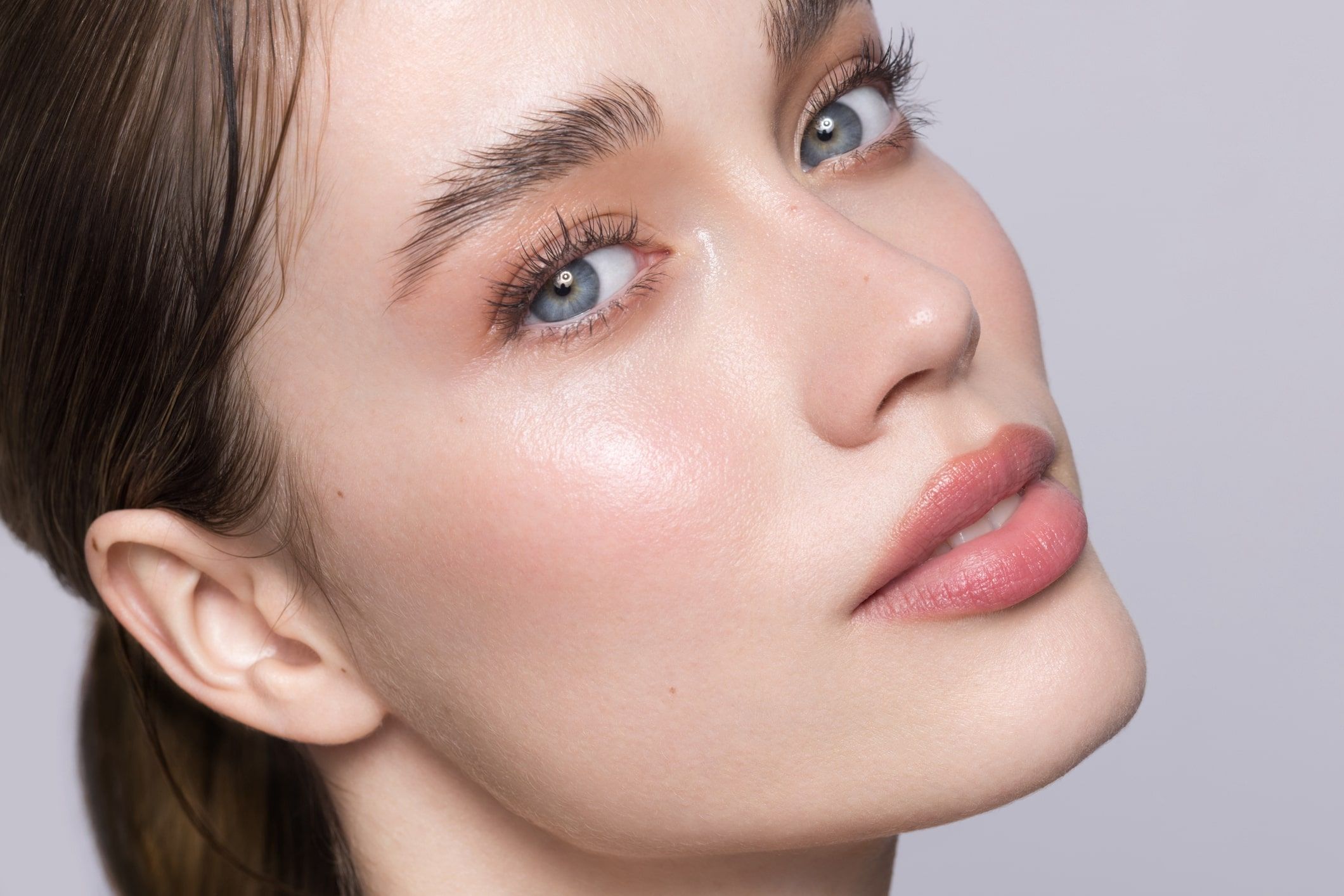Featured
City Dweller? What You Need to Do to Protect Your Skin
Urban living can present unique challenges for your skin. Here is what you can do to stay protected.

By Charlene Bollinger
August 18, 2025
Do you live in the city? The latest US Census Bureau report found that over 80 percent of the total US population lives in urban environments. If you are reading this, there is a good chance that you do!
Urban environments have so much to offer—music, good food, a diversity of neighborhoods, sporting events, and culture. However, more so than other environments, urban living can present unique challenges for your skin. Here is what you can do to stay protected as you enjoy all that your unique city has to offer!
Outdoor Air Pollution
According to experts, upwards of 80% of the “visible signs of aging” are caused by everyday lifestyle-related stressors. For city dwellers, one of the biggest of these stressors can be air pollution. There are, in fact, two different kinds of air pollution that can affect your skin and your overall health: indoor air pollution and outdoor air pollution. Let’s take a look at outdoor air pollution first.
The good news is that since 1990, air quality across the US has actually improved, going down by over 70% in many states. Still, the US Environmental Protection Agency (EPA) estimates that about 68 million tons of airborne pollution were emitted within the country in 2020 alone. (1)
Toxins coming from manufacturing, cars, trucks, and air traffic can harm your skin. According to the EPA National Air Quality Survey, some city-specific airborne toxins include carbon monoxide, lead (and other heavy metals), nitrogen dioxide, ozone, sulfur dioxide, and miscellaneous particulate matter. Studies have acknowledged that “a)t the interface with the air, skin is the target of several environmental stressors.” (2)
A 2019 meta-analysis report put together by an international team for the Journal of the European Academy of Dermatology and Venereology found that harmful forms of ozone (also known as “smog”) can affect the “AHR (aryl hydrocarbon receptor) pathway” in the skin, which can then kickstart inflammatory processes. (3) The heightened oxidative stress caused by ongoing exposure to airborne environmental contaminants like benzo(a)pyrene (BP) can also aggravate skin-related disorders like atopic dermatitis, acne, eczema, and psoriasis.
Indoor Air Pollution
Whether it is in homes, office buildings, or schools, the time we spend indoors across the board is a lot. In fact, according to some estimates, one out of four people living in the modern world will spend 90% of their time indoors. Some indoor-specific air pollutants that can affect your skin and your whole body include:
- dust
- pollen
- animal dander
- radon (especially in basement areas and basement apartments)
- asbestos
- smoke (from cigarettes, vaping, wood, and fuel-burning appliances)
- VOCs, or volatile organic compounds.
VOCs in particular are of concern when it comes to higher risk for all disease conditions. VOCs are a byproduct of outgassing from common household items, such as AC and forced air heating units, appliances, furniture, and carpet (especially if it is new), lead in old homes, and molds as well as mycotoxins.
According to the Global Burden for Disease, a major global study, indoor air pollution “is a risk factor for several of the world’s leading causes of death, including heart disease, pneumonia, stroke, diabetes, and lung cancer.” (4) A 2014 review in the journal Frontiers in Environmental Science found that VOCs, cigarette smoke, and particulate matter can have “profoundly negative effects on the skin.” (5)
Don’t Drink the Water
To be fair, rural areas have their issues, too, when it comes to clean water supplies. Agricultural runoff or waterborne pollutants coming from local mining operations can put rural water supplies at risk. On the other hand, urban areas have unique challenges that cannot be ignored.
“Urban runoff” is when pollutants make their way into the water supply from industrial and commercial areas, roads and freeways, and dense residential areas. Everything from pesticides and heavy metals to pharmaceutical drugs and microorganisms can be found in urban runoff water. Filtering systems that many urban areas use to clean their municipal water supplies can help, but may also contain excess chlorine, aluminum sulfate, iron, and other disinfectant agents. These agents can be harsh for your skin and bad for your whole body. (6) (7)
EMFs Galore
EMFs, or man-made electromagnetic frequencies, come from large cell towers and antennae, neighborhood 5G towers, electrical transformers and lines, SMART meters, and more. If you are a city dweller and you want to maintain that “youthful glow,” you need to know how to protect yourself from harmful EMFs.
US cities are some of the most densely EMF-saturated areas on the planet. To give you an example, according to the site, Antennasearch.com, there are 567 cell towers and 5715 antennas within a 3-mile radius of Central Park in New York City. (8) And according to large-scale research reports like the Bioinitiative 2012” Report, long-term, close-range exposure to EMFs can have negative effects at the cellular level. (9)
Be sure to check out this article to learn how you can protect yourself from EMF overload in the city!
City Stress.
As much as the city can tantalize, entertain, and provide unlimited opportunities, did you know that living in a densely populated area does come with measurable risks when it comes to stress? A 2011 German report published in the journal Nature is just one of many in recent years that have found that the hustle-bustle and pollution levels (including noise pollution) of most urban areas are associated with “increased amygdala activity” as well as heightened activity in the “perigenual anterior cingulate cortex (PACC).” The PACC is a key area of the brain for amygdala regulation and other stress-related mechanisms. (10)
Psychological stress can be seen most noticeably on the skin. Multiple studies have proven that higher stress responses pave the way for inflammation, which can have an impact on collagen synthesis (a process that is absolutely needed for the creation of new skin cells), nutrient loss, and much more. (11)
Solution: Detox & Protect on the Inside and On the Surface of Your Skin!
Outdoor air pollution, indoor air pollution, dirty water, EMFs, higher stress levels overall…yikes! Living in the city may be tougher on your skin (and on your whole body) than you may have thought.
Then again, if you love your city and there is nowhere else you would rather be, take heart! There are things you can do to calm the stress of the city and the effect it may have on your skin. Here are a few steps to get you started:
#1 Be sure to hydrate your body with plenty of fresh, filtered water. You can also hydrate your skin everyday by using the CHARLíS Revitalizing Daily Moisturizer with citrus essential oils, argan, and more!
#2 Move your body to keep blood flowing, improve gut and brain health, and more. If you can, take a walk in a nearby park to experience the stress-lowering and immune-boosting effects of “forest bathing.” (12)
While you are out, be sure to protect your skin from both pollution and the harsh UV rays of the sun by using the CHARLíS Neutral Tinted Face Moisturizer with SPF 25 and the CHARLíS Orange Blossom Lip Balm. Both are available through the new CHARLíS Collection Luxury Skin Line.
#3 Support your lymphatic system through massage, light skin brushing (if not too sensitive), and sauna. Take advantage of all the resources available to you in the city and connect with a spa or gym that has an infrared, steam, or dry sauna. Sauna use can kickstart several mechanisms of detoxification and immune protection in your body, including higher Heat Shock Protein and Natural Killer cell production. Studies have also found that hyperthermia, whether it comes from modalities like sauna or internal mechanisms like fever, can destroy pathogens directly. (13)
After your sauna, be sure to apply the CHARLíS Breath of LIfe Oxygen Face Serum to your face and neck for a luxurious, oxygenating, life-giving renewal!
#4 Engage in regular fasting days (including fasting from media too). Even short-term fasting, sometimes called intermittent fasting, has been proven to help boost immunity, balance metabolism, and kickstart mechanisms such as autophagy that can lead to deep detox for the whole body.
#5 Commit to a deep, restful sleep by turning off all wifi and blue-light devices at least an hour before bed.
And finally…
#6 Focus on key herbs and foods to help detox and fortify. On the inside, this may look like liver-friendly, detoxifying substances like milk thistle, ashwagandha, and cruciferous vegetables.
On the surface of the skin, there is no other product like the CHARLíS Restorative, Anti-Aging, Overnight Serum. This formula contains organic pyrus malus (apple) fruit extract, which is chock-full of polyphenolic antioxidants designed to destroy free radicals before they even have a chance to affect the skin. It also contains naturally derived sodium hyaluronate, designed to lock in moisture and prevent dryness without feeling greasy. Use the CHARLíS Restorative, Anti-Aging, Overnight Serum each night after cleansing with the CHARLíS Daily Facial Cleanser for best results.
When you live in the city, you “input” more– more noise, more activity, more pollution, more stress, more everything. Yes, our bodies are designed to handle a certain amount of stress, but even our amazing immune system (and protective functions on the skin surface) has its limits. Get into the groove for life in the city by being aware of the challenges that come with urban life. Then embrace a detox and immune-boosting lifestyle for the health of your skin with the help of CHARLíS!
References:
- Air Quality - National Summary
- The impact of airborne pollution on skin
- The aryl hydrocarbon receptor AhR links atopic dermatitis and air pollution via induction of the neurotrophic factor artemin
- Our World in Data: Indoor Air Pollution
- Air pollution and the skin
- UN Water and Urbanization
- The Quality Difference between Water Supplies in Urban Area and Rural Area
- Search Results Antennasearch.com Central Park NYC
- Bio-Initiative
- City living and urban upbringing affect neural social stress processing in humans
- Even low-grade inflammation impacts on small intestinal function
- Effect of forest bathing trips on human immune function
- Adverse effects of aspirin, acetaminophen, and ibuprofen on immune function, viral shedding, and clinical status in rhinovirus-infected volunteers
Join the Conversation
subscription
join our exclusive beauty community
Elevate your beauty journey with personalized recommendations and stay connected with a community that shares your passion for self-care. Subscribe now and embark on a beauty adventure with us!
